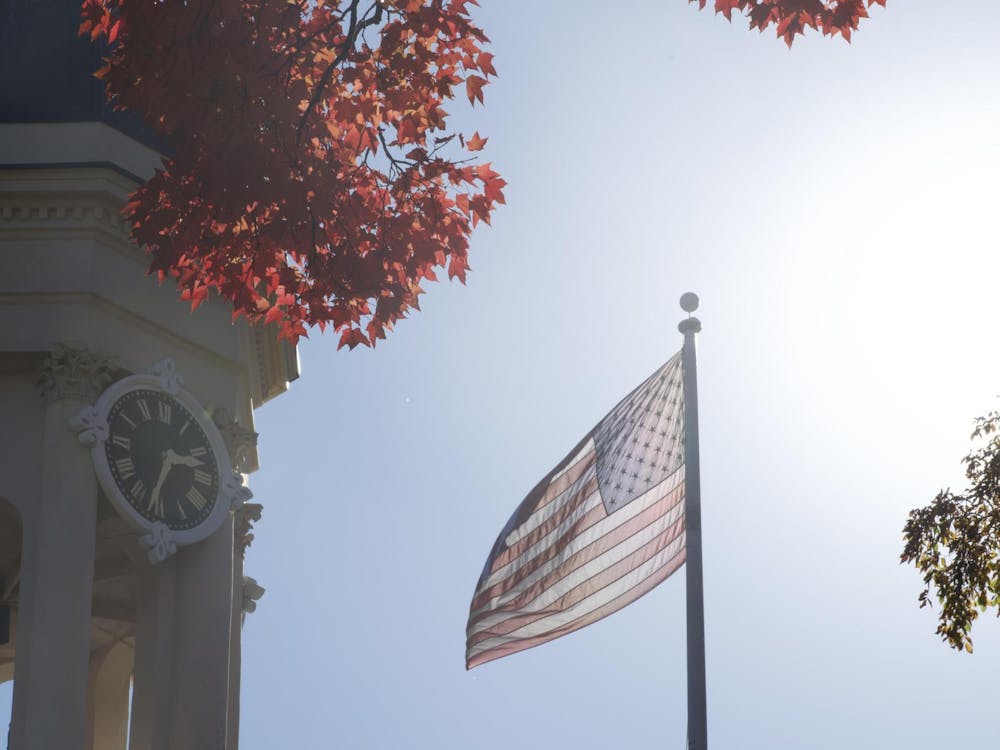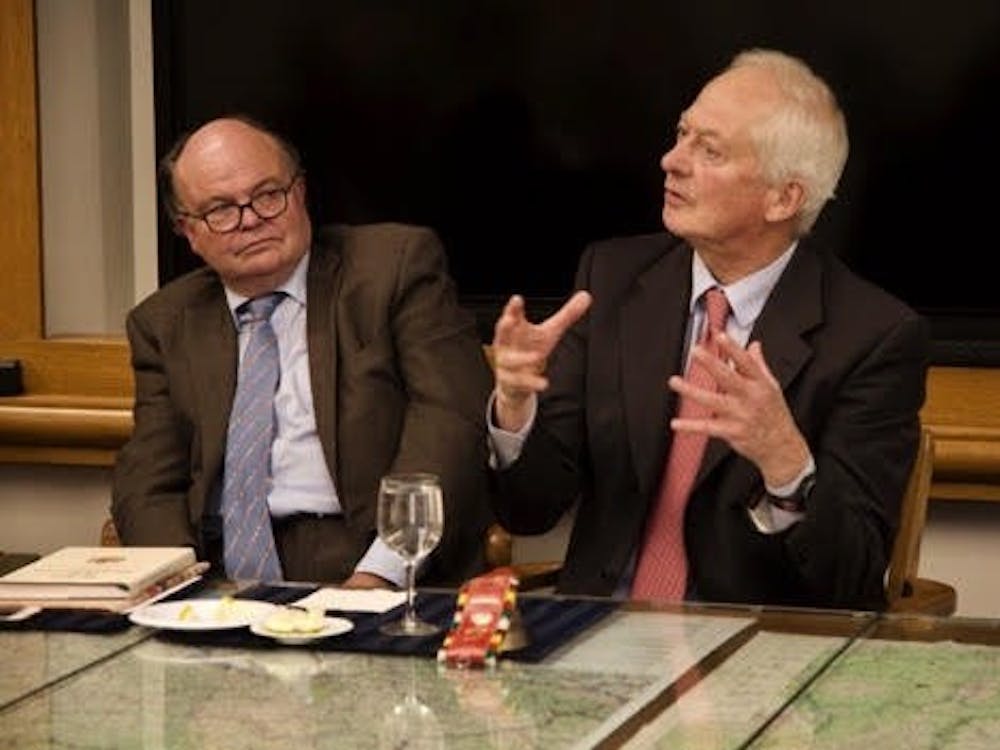The University’s highest-paid officer, Andrew Golden, who has served as President of the Princeton University Investment Company (PRINCO) since 1995, is set to step down from the role in 2024, according to a University press release. Golden will retire on June 30, 2024, after nearly three decades as president.
PRINCO was founded in 1987 as a University office to manage Princeton’s endowment. The endowment grew nearly tenfold during Golden’s tenure and reached a 37.7 billion valuation in 2021, when the University had a historic 46.9 percent return. In 1996, the year after Golden joined, it was valued at approximately $4 billion.
President Christopher Eisgruber ’83 wrote in a statement that “Andy Golden’s achievements are the stuff of legend.”
“His brilliant leadership of PRINCO has changed the economic model of this University, enabling us to support financial aid, graduate stipends, research excellence, and the teaching mission in ways that would otherwise have been unimaginable,” he added.
Golden’s departure comes in a time of transition for the University administration: the University number two and number three administrators recently departed.

Golden was not available for an interview.
Major moments in PRINCO history
Over the course of thirty years, Golden has seen PRINCO through major debates about the University’s investments. Golden arrived in 1995, one year after the University ended its “selective divestiture” policy toward South Africa following the fall of apartheid.
In 2012, PRINCO also stopped making further investments in HEI Hospitality, an American hotel-investment firm that was accused of mistreating workers. There was protest on campus once it was discovered that the University had investments in the company. The University decision came after similar ones at Brown, Yale, and the University of Pennsylvania.

However, at the time, Golden told The Daily Princetonian that the decision was “based purely on business reasons.”
“It would be absolutely wrong to infer that PRINCO had concluded that HEI was out of compliance with regulations or industry standards,” Golden had said.
Information about holdings is rarely made public — notably, in 2013, in the wake of the Sandy Hook school shooting, the University’s Resources Committee released a statement noting that it had “learned from PRINCO that, at present, the University does not have any direct holdings in companies that manufacture weapons.”
This came after a petition signed by 113 faculty members called on the University to freeze investments in companies involved in the production of semi-automatic weapons. Golden noted at the time that information about the University’s holdings did not come from PRINCO, but may have been made available to the Committee by the University President or Board of Trustees, to which PRINCO reports.
In 2022, after a decade of student activism, the University dissociated from a number of fossil fuel companies under Golden, and though PRINCO did not comment on specific holdings, the University listed the companies affected by the policy in its announcement. In the past, Golden had begged off from making a specific statement on divestment, telling the Policy Punchline Podcast in February 2020 that “making a political statement is above our pay grade.” The final decision was made by the Board of Trustees.
In a statement to the ‘Prince’, members of Divest Princeton wrote, “Divest Princeton hopes to see Golden's replacement embody the values of the University that are so core to our campaign. We hope to see a commitment to socially responsible investments and an interest in protecting the future of our planet and all Princetonians.”
In recent years PRINCO has claimed several high-profile successes as it seeks to increase demographic diversity among its asset managers. Golden noted that among the six new investment management firms hired since 2018, four are led by either women or minorities. “In this case, both have significant, on the minority front, African American representation,” he said.
Golden’s time on campus
In the fiscal year ending in 2021, Golden made more than seven million dollars, of which 4.2 million was effective income. He and other PRINCO executives are the highest paid University employees, making more than University President Christopher Eisgruber, who made about one million dollars. Golden has made more than the University president since 2002, the first year of Shirley Tilghman’s presidency.
Before coming to Princeton, Golden was the chief coordinating officer and portfolio strategist at the Duke Management Co., which oversees Duke University’s endowment. Golden graduated from Duke in 1981 with a degree in philosophy, before earning an MPPM from the Yale School of Management in 1989. Golden is the third president of PRINCO.
“My time here has been an incredible privilege,” Golden said to the University, “and it was love at first sight.”
Golden was also tapped by the U.S. Treasury to serve on the Investors’ Committee of the President’s Working Group on Financial Markets in 2007. The committee included representatives from labor organizations and endowment funds and sought to develop best practices guidelines to “enhance market integrity.” Golden served a three-year term. Notably, the working group released a set of recommendations addressing best practices for the hedge fund industry in Jan. 2009, in the wake of the Global Financial Crisis.
PRINCO’s president reports to both Eisgruber and Bob Peck ’88, the chair of the 12-member PRINCO board of directors. Peck is also a University trustee.
“Andy’s spectacular success in investment performance is equally matched by his distinguished leadership of PRINCO in building an excellent team and distinctive culture,” Peck said in a statement. “He’s achieved all this success while being an exemplary citizen of the University beyond PRINCO, which has elicited great fondness and appreciation across campus.”
According to the press release, “a search for Golden’s successor will be conducted over the coming year, for which the University has engaged David Barrett Partners,” a global retained executive search firm specializing in recruiting strong candidates in investment and wealth management recruiting.
“It’s been almost a three-decade marathon,” Golden said. “My goal for the year ahead is to sprint through the tape, and to make sure that Princeton is positioned for success over the next 25 years.”
Sandeep Mangat is a head News editor for the ‘Prince.’
Lia Opperman is an associate News editor for the ‘Prince.’
Miriam Waldvogel is an assistant News editor for the ‘Prince.’
Bridget O’Neill contributed reporting.
Please send any corrections to corrections[at]dailyprincetonian.com.
Correction: A previous version of this article said divestment was a decision made by a faculty panel, it was actually the Board of Trustees.








